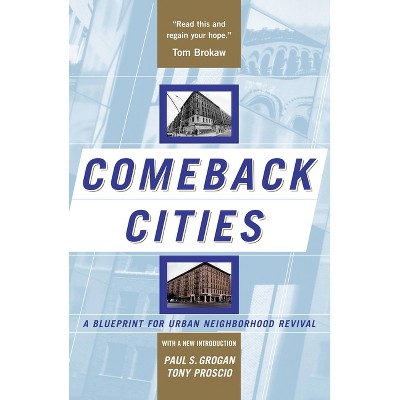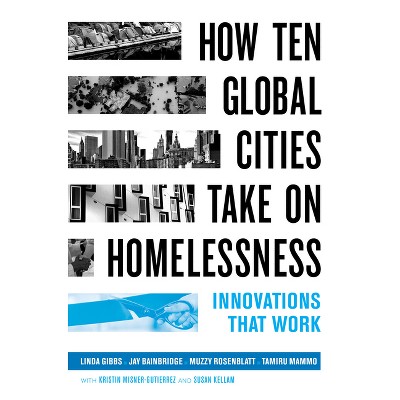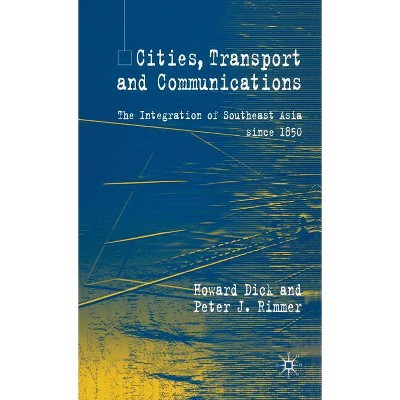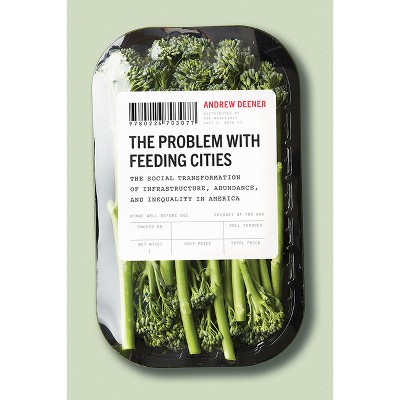Sponsored

Informal Cities - by Charlotte Vorms & Brodwyn Fischer
In Stock
Sponsored
About this item
Highlights
- An empirically rich reconstruction of how informality became an intrinsic part of urban life across three continents.
- About the Author: Charlotte Vorms is associate professor of history at the Paris 1 Panthéon-Sorbonne University where she is also a member of the Center for the Social History of Contemporary Worlds.
- 384 Pages
- Social Science, Sociology
Description
About the Book
"Over a quarter of the world's urban population lives in informal settlements. While informality as a concept has been widely debated, it is still in need of a definitive account, which is what this agenda-setting coedited volume sets out to provide. Arguing that informality was vital to urban development across the globe, the editors and contributors reveal informality as an intrinsic feature of urbanity, capable of illuminating processes of state formation, socioeconomic stratification, and political struggle. The volume brings together cases from Latin America (Brazil, Chile, Venezuela, and Mexico), Northern Africa (Morocco and Algiers), and Latin Europe (France, Spain, and Italy) to dispel the notion that urban informality exists only in the Global South. Topics range from attempts to legitimize informal settlements to grassroots efforts to build and save them and the role of racial and ethnic discrimination in their governance. Informal Cities is an indispensable guide to the complex and fraught terrain of urban informality in its many guises"--Book Synopsis
An empirically rich reconstruction of how informality became an intrinsic part of urban life across three continents.
Over a quarter of the world's urban population lives in informal settlements. While informality as a concept has been widely debated, we still know very little about the phenomenon's urban history or how that history has shaped the evolution of world cities. Spotlighting the historical processes that have created and sustained urban informality for more than a century, editors Charlotte Vorms and Brodwyn Fischer and this volume's contributors reveal informality as an intrinsic feature of urbanity, shaping not only cities across the globe but also deeper processes of state formation, socioeconomic stratification, and political struggle.
The volume brings together case studies spanning more than a hundred years, drawn from Latin America (Brazil, Chile, Venezuela, and Mexico), Northern Africa (Morocco and Algeria), and Latin Europe (France, Spain, and Italy). Together, they show that informality is neither a contemporary crisis nor a predicament unique to the Global South. Topics include the origins of informal settlements and their relationship with law and institutional power; grassroots efforts to legitimize shantytown communities; mass social movements for rights to the city; the role that shantytown removal campaigns played in populist politics, fascism, and colonialism; and the ways that informality perpetuated racial and ethnic inequalities. Informal Cities is an indispensable guide to the complex and fraught terrain of urban informality in its many historical guises.Review Quotes
"This outstanding collection is intellectually rigorous and empirically rich. Thanks to the spatial and temporal breadth of the contributions, as well as the clear analytic focus of the collective inquiry, it is tightly organized on key themes without being narrow--a rare example of success for both global historical research and edited collections. It is a major contribution--an utterly novel demonstration of the historical nature and modernity of informality."-- "Alexia Yates, University of Manchester"
About the Author
Charlotte Vorms is associate professor of history at the Paris 1 Panthéon-Sorbonne University where she is also a member of the Center for the Social History of Contemporary Worlds. She is the author or coeditor of several books, including La forja del extrarradio and What's in a Name?Brodwyn Fischer is professor of Latin American history at the University of Chicago, where she also directs the Global Studies Program. She is the author or coeditor of several books, including A Poverty of Rights and Cities from Scratch.Shipping details
Return details
Frequently bought together


Trending Non-Fiction















